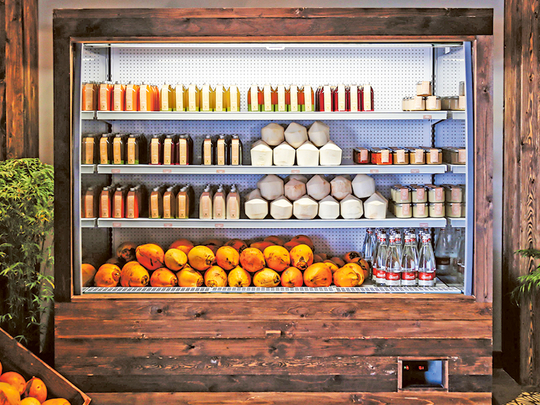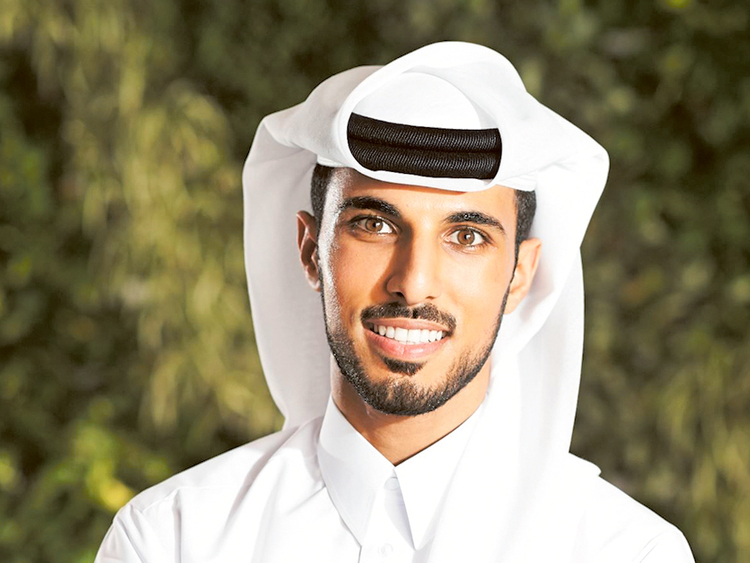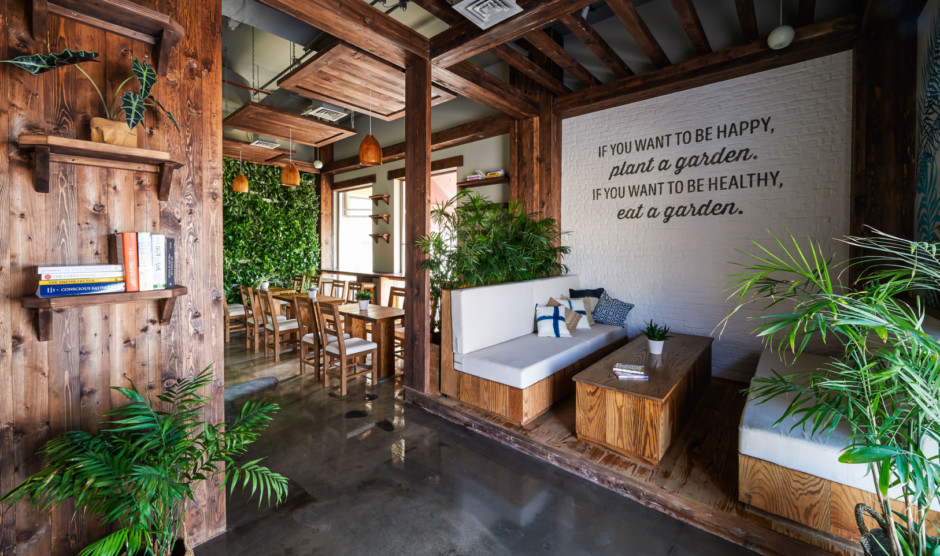
Doha: A growing awareness about healthy eating seems to be slowly seeping into Qatari society, and 24-year-old Qatari national, Ganem Al Sulaiti, is at the forefront of this movement.
Al Sulaiti, a vegan and co-founder of Evergreen Organics, has adopted a food lifestyle alien to most Qataris.
“I was raised to feel that food is fuel, and the only way to get your calcium is through milk and your proteins through meat,” he told Gulf News.
Growing up, Al Sultaiti consumed typical Gulf dishes in his home, based primarily around rice and meat.
But the young man, who is an engineer by day, said he learnt about veganism while watching US talk show ‘Good Morning America’.
Al Sulaiti was always drawn towards healthier eating habits, but he began reading more about veganism.
“I later realised I had been completely wrong in my definition of being healthy until I actually started trying things out, and feeling completely different,” he explained.
Vegans are vegetarians first — they do not consume meat, fish or poultry. And in addition to this, they do not use other animal products and by-products such as eggs, dairy products, honey, leather, fur, silk, wool, cosmetics, and soaps derived from animal products.
“My intention was only to try it out, but before I knew it, within a year I was fully vegan, unintentionally — I was blown away by how much of a difference it made.”
His peers were curious and bewildered how he was able to keep up the diet, especially living in a society where heavy meals are a part of the social fabric.
Many believed he would not be able to sustain the lifestyle and it would be a fleeting fad, but for Al Sulaiti, it wasn’t about that.
“I wasn’t doing it because I thought it was trendy, or because I was an activist or an environmentalist. I was doing it because I read a lot, and realised this lifestyle was more realistic for someone who wanted to be healthy,” Al Sulaiti explained.
A sedentary lifestyle combined with a penchant for packaged and junk or fast food have led to the increasing prevalence of lifestyle-related illnesses such as obesity, diabetes, hypertension, cancer and heart ailments in the GCC region.
The GCC states are said to have the highest rates of diabetes and obesity in the world. According to a report from Alpen Capital, the incidence rate of diabetes is anticipated to increase marginally by 2035 across the GCC, with Qatar rising by more than three percentage points.
Around 42 per cent of adults in Qatar are obese, compared to the region’s average of 37 per cent. These are alarming statistics, considering the global average is 13 per cent and the high-income countries’ average is 23.5 per cent.
While Al Sulaiti started out with the intention of feeling good, he gradually started to realise how other important things factored in. A ripple effect, he called it, as being vegan meant he was doing good things to the environment, the people around him and business as well.
“When I realised how many things my choices were impacting, I felt like a more responsible global citizen,” he said.
But did he get cravings?
“Some foods we think we can’t live without. But as I progressed with this new diet, one day I woke up with absolutely no cravings,” he said.
“I now crave kale and cucumber,” he joked.
“We are all trapped in a world where we think it’s a necessity to eat certain foods, but it is not. We can’t live without chocolates and sodas because we were raised like that, and this is the biggest epidemic we are faced with currently.”
When he went vegan, at first Al Sulaiti was worried to tell his family, and found polite excuses to avoid eating with them daily.
“When they finally figured it out, they said I was crazy,” he said.
“It was not part of my culture and tradition and was very hard for them to accept. They were also worried my new path wasn’t healthy,” he said.
His friends and family are always trying to get him to eat non-vegan dishes — or at least try.
In Arab culture, it is often viewed as impolite to reject food that has been offered, because it is considered a gesture of love and affection to offer someone food.
“I learnt that I just have to say no. If people love and care for you as much as they do, they will understand your decision and accept your choices,” he said.
But being a vegan in Qatar was tough as there were not many options for dining out.
He took it upon himself to fill the gap, when he co-founded Evergreen Organics, a fully vegan health-food cafe, with his partner Jowaher Al Fardan.
He doesn’t expect everyone to become vegan, but he hopes his cafe will help people become more food-conscious.
“Just know where your food comes from,” he said.
He says he is quite surprised on how much of a market there is in Qatar for vegan food.
In the grand scheme of things, Al Sulaiti has admittedly taken a huge risk. However, the risk has been highly rewarding. “People don’t care if it’s vegan or not, they come here because it’s good food and they like how it tastes.
“All I had to do was believe in myself,” he said.













